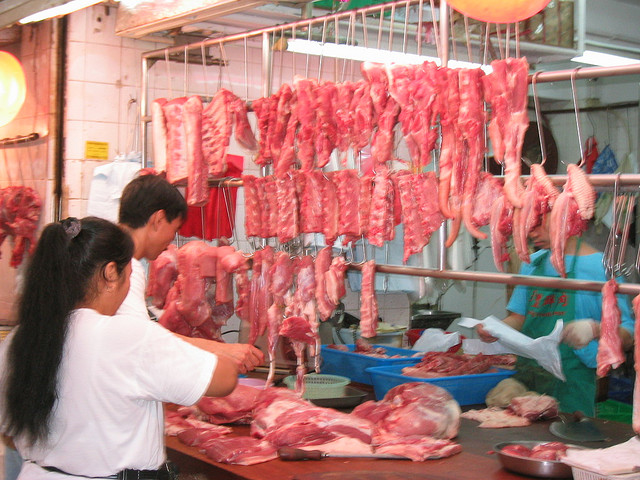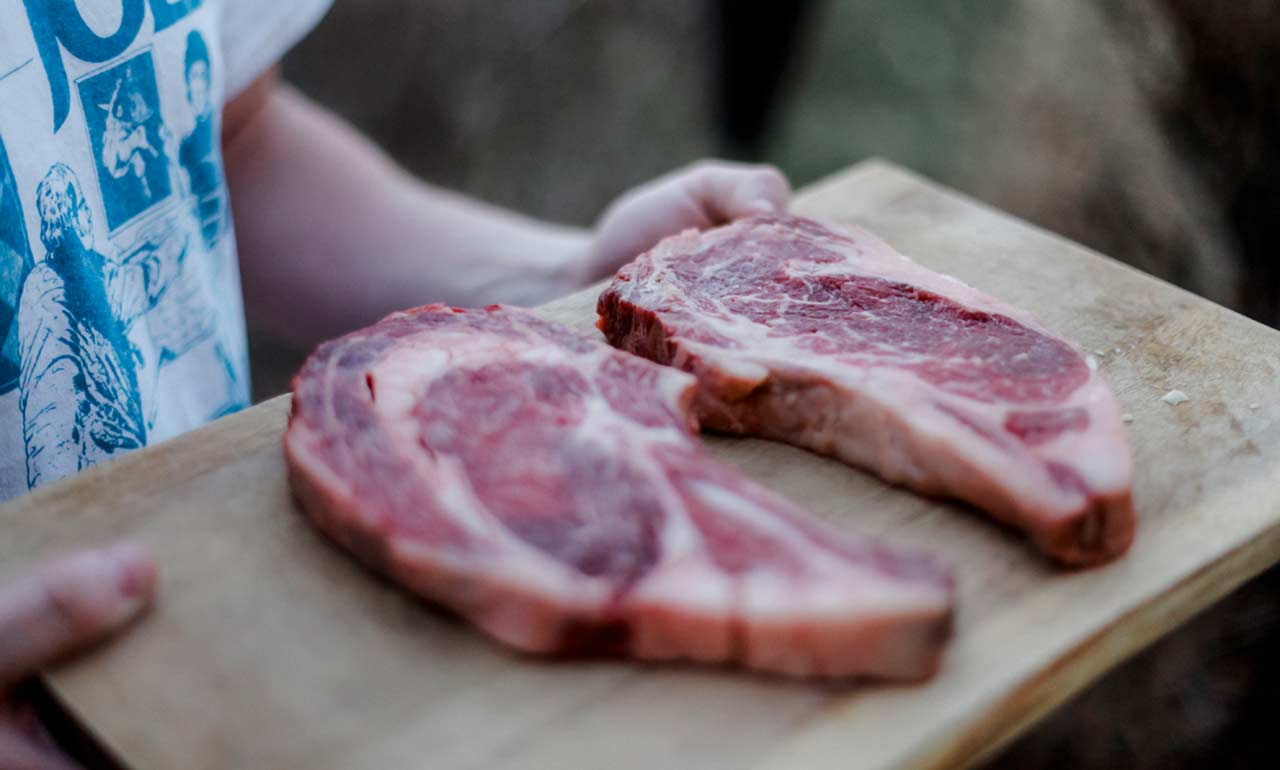Why Shopping at a Local Meat Market Guarantees Fresh, High-Quality Cuts
Buying at a neighborhood meat market uses unique advantages that commonly go undetected by consumers accustomed to larger retail chains. These markets provide direct accessibility to fresh, high-quality cuts, a result of lessened transportation time from ranch to respond to. This not just improves taste but also supports neighborhood farmers, cultivating neighborhood connections and sustainable methods. Extensive top quality control gauges make certain that each acquisition meets high standards of safety and security and freshness. Yet, the implications of choosing local prolong beyond prompt benefits, motivating a more detailed examination of what this selection absolutely indicates for both consumers and the local economy.
Benefits of Neighborhood Sourcing
In the realm of food procurement, the advantages of neighborhood sourcing stick out plainly. By acquiring meat from local markets, customers obtain straight accessibility to products that are frequently fresher and much more delicious than those found in larger, commercial grocery stores. Regional sourcing lowers the time and distance food takes a trip from farm to table, which not just improves taste yet likewise maintains nutritional value.

Furthermore, neighborhood sourcing frequently gives transparency pertaining to the origins of the meat. Customers can ask about the farming techniques made use of, pet welfare requirements, and whether the meat is grass-fed or natural. This info equips shoppers to make enlightened choices aligned with their values.
Quality Assurance Specifications
Local meat markets usually abide by strenuous high quality control requirements that make sure the items supplied fulfill high safety and quality benchmarks. These criteria generally encompass different stages of the meat manufacturing procedure, from sourcing to handling and storage.
First, neighborhood markets commonly develop stringent supplier criteria, making certain that only trusted ranches and producers are utilized - bagley meat market edwardsville il. This minimizes the probability of contamination and promotes greater pet well-being requirements. Furthermore, lots of local meat markets carry out normal examinations to confirm that the meat is refined under sanitary problems, better decreasing wellness dangers
Temperature control is another critical facet of quality control. Local meat markets often keep an eye on refrigeration systems to maintain optimum storage temperature levels, making sure that meat remains fresh and risk-free for usage. Moreover, the execution of traceability systems permits markets to track the beginning of their products, providing transparency and accountability.
Finally, staff at local meat markets are typically trained to acknowledge indicators of putridity and recognize appropriate handling methods. This commitment to quality assurance not just raises the overall requirement of the meat but likewise cultivates consumer count on, making neighborhood meat markets a reliable resource for top notch cuts.
Supporting Neighborhood Farmers
Supporting neighborhood farmers is vital for promoting a sustainable food system and enhancing community strength. They straight contribute to the resources of farmers in their region when customers pick to go shopping at local meat markets. This not just sustains the regional economy yet likewise enhances the agricultural field, making sure that it stays vivid and feasible.


Furthermore, supporting neighborhood farmers fosters a sense of area and connection in between producers and consumers. It motivates transparency in food sourcing and imparts depend on, as customers can establish connections with the individuals who elevate their food. This direct link ultimately leads to a much more involved Clicking Here and notified public, which is crucial for advocating for sustainable farming methods in the future.
Sustainable Practices
Lasting methods in meat markets play a critical role in advertising environmental stewardship and ensuring animal well-being. Local meat markets commonly focus on sourcing their items from farms that execute sustainable and ethical farming techniques. These techniques consist of rotational grazing, which helps maintain soil health and wellness and lowers carbon emissions, together with minimizing making use of prescription antibiotics and hormones in animals.
In addition, neighborhood meat markets generally emphasize openness in their supply chains. Clients are given with information concerning the origin of their meat, permitting them to make educated options that align with their worths. By sustaining regional farmers that practice lasting techniques, customers add to the conservation of biodiversity and the reduction of transport discharges related to long-distance meat distribution.
In addition, several local meat markets participate in waste decrease strategies, such as making use of every part of the animal and promoting off-cuts that might otherwise go unsold. By cultivating an extra sustainable method to meat usage, these markets not only supply premium items but also contribute positively to the environment and pet well-being. In essence, purchasing at a local meat market lines up consumers with a broader activity towards honest and liable food sourcing.
Customized Client Service
Purchasing at a meat market typically includes more than just the products used; it is also about the experience and the relationships built between clients and team. Customized customer solution is a hallmark of regional meat markets, setting them aside from bigger grocery chains. Educated personnel make the effort to comprehend specific client preferences, ensuring that each check out read review is tailored to particular demands.
Clients gain from expert advice on cuts, cooking approaches, and preparation ideas, promoting a sense of count on and loyalty. This tailored interaction allows clients to ask inquiries and look for suggestions, bring about informed investing in choices. Team member commonly keep in mind normal customers and their choices, producing an inviting atmosphere that grows neighborhood connections.
In addition, individualized solution reaches unique requests, such as custom cuts or specific prep work methods, which larger merchants might not accommodate. This level of attention strengthens the dedication of neighborhood meat markets to top quality and client satisfaction.
In significance, individualized client service not just boosts the buying experience however likewise makes certain that customers entrust the ideal items suited to their cooking requirements, making every check out a gratifying one.
Verdict
Supporting regional farmers cultivates community connections and strengthens the local economic climate, while sustainable methods contribute to environmental stewardship. Additionally, tailored consumer solution enhances the shopping experience, making regional meat markets a favored option for consumers seeking both top quality and honest factors to consider in their food sourcing.
The implications of choosing regional extend past prompt benefits, triggering a more detailed exam of what this selection really indicates for both customers and the neighborhood economic climate.
Sustaining neighborhood meat markets likewise adds to the local economy. Local meat markets regularly keep track of check here refrigeration systems to maintain optimum storage temperatures, ensuring that meat stays fresh and safe for intake.Local farmers are often much more attuned to the details needs of their neighborhoods, growing plants and raising animals that align with local tastes and choices. Sustaining local farmers fosters community relationships and reinforces the local economic situation, while lasting techniques contribute to environmental stewardship.